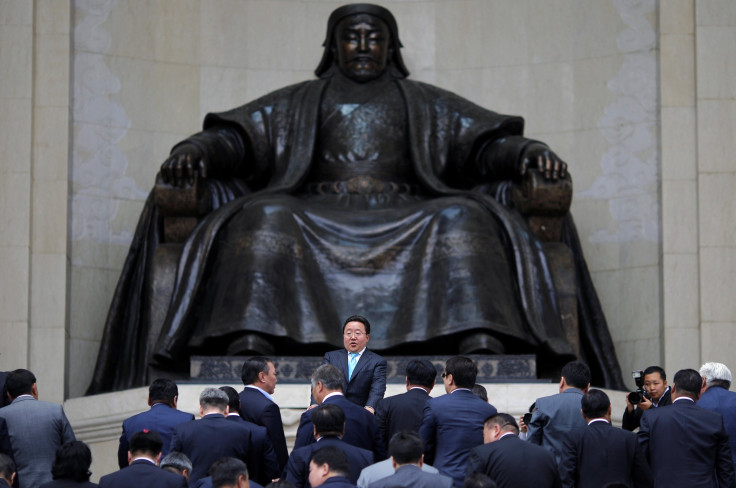The Genghis Khan Factor: Mongolia Is A Coronavirus Bright Spot
KEY POINTS
- Thirty countries across the globe have reported zero deaths
- Mongolia is among those, with only 213 confirmed cases
- Apart from the lingering presence of Genghis Khan, native Mongolians also credited their lack of infection from the coronavirus to clean air, free-range meat and milk, and a heartiness gained from the hard work
The global death rate caused by COVID-19 is about 60 people per million, according to Worldometers, a statistics reference website. The United States’ death rate is 369 per million and of the more than 200 countries on the list, 30 have reported zero deaths.
One country reporting no deaths is Mongolia, which has only 213 confirmed cases. What is unusual about Mongolia is that none of the victims were ethnic Mongolians, but Han Chinese, according to Dr, Chinburen Jigjidsuren, a special health adviser to the prime minister.
Inner Mongolia is an autonomous region of mainland China. It has a population of about 25 million, and most residents are ethnic Han Chinese. Outer Mongolia (officially Mongolia without the “Inner” prefix) is independent of China and has a population of about 3.3 million, making it the most sparsely populated country on Earth in terms of people per square kilometer.
Native Mongolians credit their lack of infection from the coronavirus to clean air, free-range meat and milk, and a heartiness gained from the hard work of riding horses and herding sheep in temperatures that can normally range from -40°C to +40°C.
There is also the lingering presence of Genghis Khan (1162-1227), the Emperor of the Mongol Empire and often considered to be the greatest conqueror of all time. Some Mongolians believe the spirit of the man who slaughtered millions is now keeping them safe.
An unusual quartet that includes a historian, a shaman, a monk, and a medical doctor all referenced Khan while explaining why they believe Mongolia has been so successful in combating the coronavirus pandemic.
Enkh-Ouyn Byambadorj, a shaman, credits the following:
- The uncomplicated stress-free life of most Mongolians
- The simple diet that allows them to escape the perils of consumerism faced by people from other countries
- She refers to the conquest of the Mongolian Empire by Genghis and the nomadic lifestyle for the self-reliance of Mongolians. She said, “When Western people have a problem, they have to solve it. Mongolians can just live with it. If they have meat, they eat meat. If they have nothing, they do without. In the countryside, there is no doctor, not even for the pregnant ladies. They just have the baby. Mongolians don’t care about problems. Even living and dying does not matter to them”
A monk, Ukhaanzaya Dorjnamnan, compared the coronavirus to a powerful mystic serpent called a naga. This naga, the monk believes, does not harm Mongolians because they live closer to nature. About Khan, he said, “Genghis Khan chose this land for us because it is a good land. And he promised that it would protect us.”
Jack Weatherford, the author of "Genghis Khan and the Making of the Modern World", wrote the migration of Mongolians put them in contact with millions, exposing them to a vast array of diseases, which, according to the historian, could have given Mongolians a heartier immunity.
Dr. Jigjidsuren credited effective communication systems akin to what Genghis Khan developed to send messages to all parts of the Empire. He said, “We did the same today, like in the days of Genghis Khan. Government messages from Ulan Bator were quickly relayed to nomads in the remote provinces.”
He also credits masks and a compliant disciplined population that in a way was like Khan’s army.
None of the four mentioned the obvious: the sparse population provides Mongolia with a built-in social distancing agenda like no other place in the world.

© Copyright IBTimes 2024. All rights reserved.





















